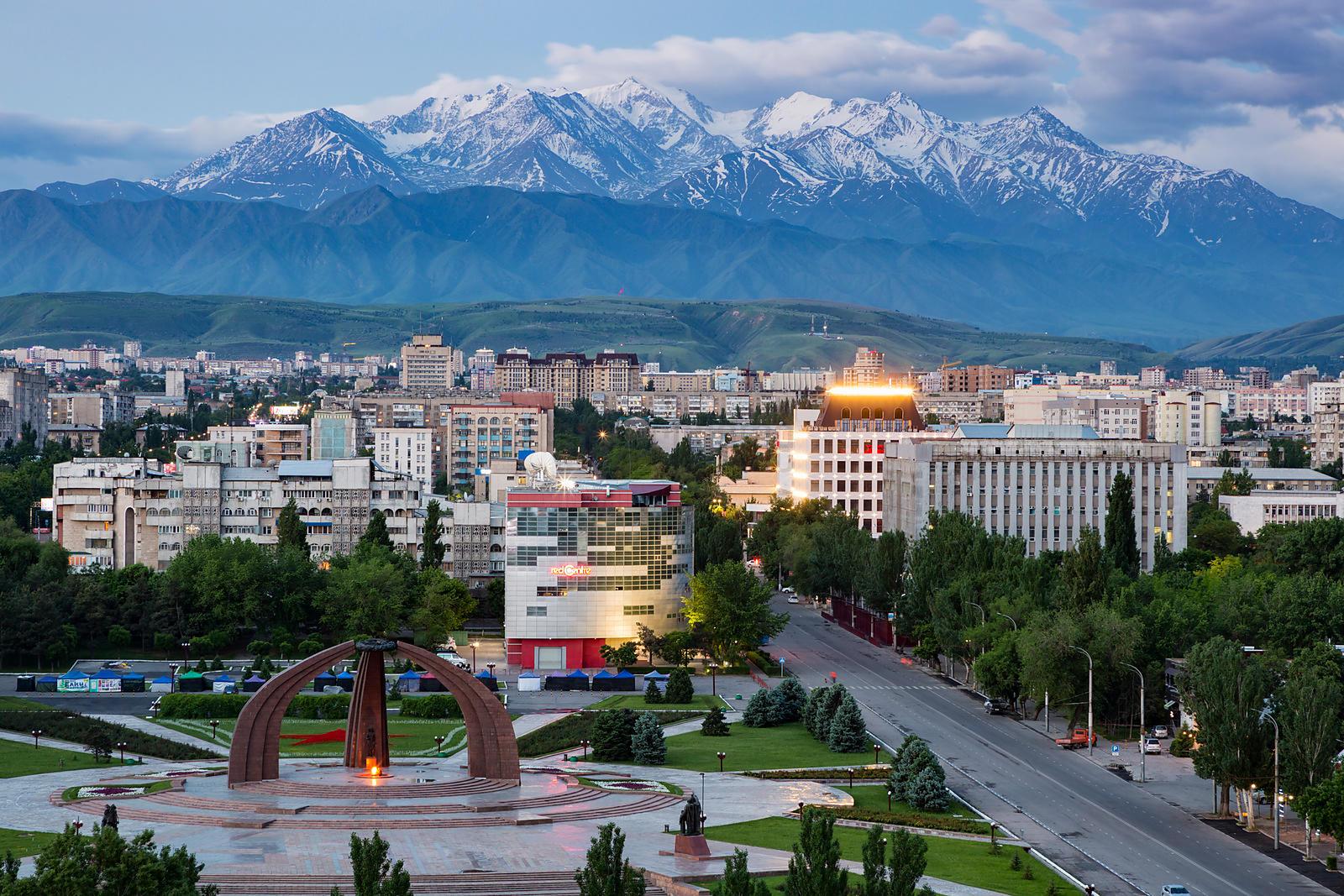
Author: Weilin, PANews
The Central Asian country of Kyrgyzstan is quietly rising as a nation worth watching for its exploration of crypto innovation.
On April 15, Kyrgyzstan officially announced that the National Investment Agency, directly under the president, signed a strategic memorandum of understanding (MoU) with Binance founder Zhao Changpeng (CZ), officially appointing CZ as the national advisor on blockchain development, cryptocurrency regulation, and Web3 innovation. This news was confirmed by Kyrgyzstan's President Sadyr Zhaparov on the X platform as early as April 3.
CZ Officially Appointed as Advisor, Accelerating Kyrgyz Blockchain National Strategy
According to the signed memorandum, CZ will provide forward-looking guidance to the Kyrgyz government in the field of digital assets, including technical support for blockchain infrastructure and policy formulation. This cooperation will also focus on talent development and accelerating the construction of an innovative environment for DeFi and Web3 technologies.
Interestingly, on April 4, in response to community rumors that "Kyrgyzstan plans to lead the establishment of a national cryptocurrency exchange and will provide two buildings for trading halls," CZ clarified on the X platform: "No buildings were given, what cryptocurrency exchange uses buildings for trading halls?".
On April 7, President Sadyr Zhaparov replied, "I have been busy with the Central Asia-EU summit these days, and today I finally have time to look at the comments. I am really happy to see everyone's interest in Kyrgyzstan! Someone mentioned in the comments that someone promised to cooperate in building a building. I am not sure who promised what to whom—but if Binance needs a building, we will ensure there is one."
Although the confirmation of co-building an office building is still pending, the cooperative relationship between the two parties has clearly warmed.
According to the official announcement, the signing of the memorandum aligns with Kyrgyzstan's overall strategy to modernize its financial system and create a regional digital innovation center. According to an official statement from the president's office, the development of blockchain and digital finance has been prioritized as a national focus.
"We welcome global leaders with deep expertise who can help build a forward-looking and secure ecosystem," said Kyrgyzstan President Sadyr Zhaparov. "Blockchain and digital finance are priority areas for national development, and this cooperation marks a significant step forward for us."
In addition to regulatory efforts, the memorandum also proposes several support measures covering education, workforce training, and cross-border knowledge exchange in blockchain-related fields. These measures aim to promote the development of the domestic entrepreneurial ecosystem and align Kyrgyzstan's virtual asset regulation with global best practices.
Behind this cooperation is Kyrgyzstan's continuous promotion of crypto finance development over the past three years. Since the enactment of the "Virtual Assets Law" in 2022, which established a clear legal framework for crypto activities, the country has demonstrated its readiness for cryptocurrency adoption by launching a national crypto bank and integrating blockchain technology into its banking system, digital payments, and financial regulation. According to Kyrgyz law, Bitcoin is considered a commodity rather than a security or currency. Mining, buying, and trading Bitcoin on local commodity exchanges are legal. However, using Bitcoin as currency for domestic settlements is restricted.
According to the Central Asia Times report on January 7, 2025, interest in cryptocurrencies among individuals and businesses in Kyrgyzstan is rising, yet overall market regulation remains weak.
"Given the rapid development of digital technologies and cryptocurrencies, establishing a crypto bank has become an urgent need to integrate crypto assets into the country's traditional financial system," stated the Kyrgyz Ministry of Economy and Commerce.
The Ministry believes that establishing a licensed crypto bank will help address these challenges and improve market transparency, trust, and financial security. Through this initiative, Kyrgyzstan hopes to attract foreign investment, promote technological innovation, and provide citizens with secure, regulated channels for cryptocurrency use.
Kyrgyzstan's strategy focuses on "licensed crypto banks," which is unique. These banks will operate under a strict regulatory framework to ensure system transparency and security.
The decision to promote the establishment of licensed crypto banks stems from a strong emphasis on risk control. These institutions will comply with strict regulatory requirements to safeguard user funds and personal data. Additionally, regulatory involvement will help combat illegal activities such as money laundering and fraud. By integrating cryptocurrencies into the banking system, Kyrgyzstan aims to provide modern financial services to underserved populations.
Kyrgyzstan has imposed taxes on crypto mining. The country levies a tax rate of 10% on the electricity costs associated with cryptocurrency mining activities, which includes value-added tax and sales tax. According to the Ministry of Finance, from January to November 2024, Kyrgyzstan collected a total of 46.6 million soms (approximately $537,000) from crypto mining taxes, which is nearly half of the total amount for the entire year of 2023.
Launching Gold-Backed Stablecoin, What Highlights Does USDKG Have?

In addition to regulatory and policy efforts, Kyrgyzstan is also exploring the combination of technology and assets. An important case is the launch of the gold-backed stablecoin USDKG, a stablecoin project supported by the Ministry of Finance and anchored by gold reserves, which is seen as one of the pillar projects in Kyrgyzstan's blockchain strategy.
In a recent AMA, the project's two advisors, William Campbell and Gabriel Guerra, provided more detailed insights into the project. The credibility of USDKG comes from its state-supported structure. The stablecoin is issued only based on newly added gold reserves, preventing arbitrary issuance and inflation risks. The initial total value of gold collateral is $500 million, expected to increase to $2 billion within 24 months, further solidifying its long-term stability.
Transparency is a core principle in the design of USDKG. Each USDKG is backed by physical gold, stored in audited secure vaults. Regular third-party audits and a public reserve proof system ensure complete transparency. This distinguishes USDKG from private stablecoins that are often questioned due to opaque reserve management.
The spokesperson clearly outlined the state's role in the project. "The role of the Kyrgyz Ministry of Finance is limited to providing gold reserves. The rest of the development, auditing, and maintenance are carried out by private companies and individuals," Campbell clarified.
USDKG will initially launch on Ethereum and plans to expand to other chains as adoption grows. "We are creating an international asset, with a long-term vision to compete with major stablecoins like USDC and USDT," Campbell said.
USDKG is not only a means of storing value but is also expected to become an important tool for trade, cross-border transactions, and remittances. For a country like Kyrgyzstan, which heavily relies on overseas remittances, USDKG offers a low-cost, high-efficiency alternative to traditional banking. Additionally, USDKG is designed to operate on both centralized and decentralized exchanges, ensuring it can be widely accessed and used by institutions and retail investors.
Kyrgyz stablecoin is positioned as a solution for cross-border payments, as remittances account for about 30% of the country's GDP. By integrating into the financial ecosystem, USDKG enables instant, low-cost international transactions, making it easier for overseas workers to send money home.
The first step in integrating USDKG into the local financial system will be to connect it to Kyrgyz banks and institutions, making it a legal currency in the country. Once this foundation is established, it will expand to other Central Asian markets. "The Central Asian market is undoubtedly a target, but we are also interested in Southeast Asia and the Middle East, where gold support holds significant economic and cultural value," Guerra said.
USDKG will also be listed on global cryptocurrency exchanges, allowing for lending, yield farming, and other activities. According to Campbell, users will have three redemption options: "Anyone holding USDKG can exchange it for physical gold in Kyrgyzstan, convert it to cryptocurrencies like USDT, or withdraw fiat currency through the traditional banking system."
Competing with Neighbors, Crypto Regulatory Framework Becomes a New Focus of Economic Policy in Central Asian Countries
It is worth mentioning that Kyrgyzstan is not the only Central Asian country stepping into regulatory exploration. A member of Kazakhstan's lower house of parliament recently called for the government to establish a national crypto bank as a centralized platform for the custody and trading of legal digital assets. Lawmaker Azat Peruashev stated that the lack of a clear regulatory infrastructure has led to a rise in illegal crypto activities, with most transactions occurring outside the official regulatory system. He believes that a state-led institution would help curb tax evasion, fraud, and capital outflows through unregulated platforms.
Peruashev proposed that the national bank and licensed financial institutions should be involved in the project, defining it as a necessary measure to address the widespread abuse of crypto assets. He cited unofficial data indicating that up to 90% of crypto transactions in Kazakhstan occur in the "gray area," with large amounts of capital flowing out of the country unchecked.
Meanwhile, Uzbekistan has legalized crypto trading and established a national regulatory mechanism to manage the industry. Another future development to look forward to is whether Kyrgyzstan will follow El Salvador in designating Bitcoin as legal tender, given the establishment of regulatory frameworks and a friendly attitude towards cryptocurrencies.
The accelerated investment by many Central Asian countries in the crypto industry and related regulatory policies marks a shift in national attitudes towards digital infrastructure—it is no longer just a financial tool but is seen as a means of national governance. Blockchain technology is being integrated into the overall planning of national modernization and geopolitical strategy, and further developments are worth monitoring.
免责声明:本文章仅代表作者个人观点,不代表本平台的立场和观点。本文章仅供信息分享,不构成对任何人的任何投资建议。用户与作者之间的任何争议,与本平台无关。如网页中刊载的文章或图片涉及侵权,请提供相关的权利证明和身份证明发送邮件到support@aicoin.com,本平台相关工作人员将会进行核查。




